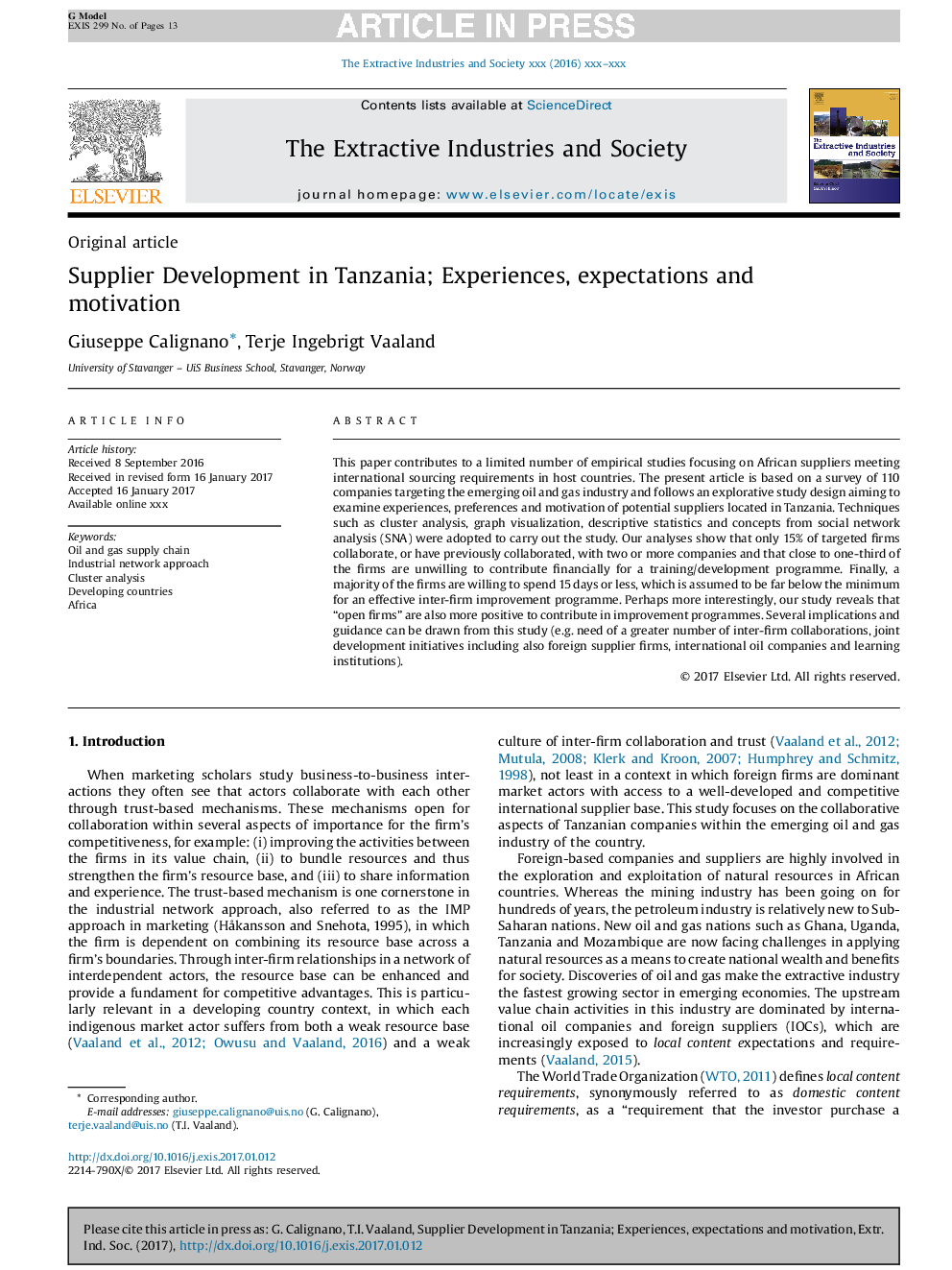ترجمه فارسی عنوان مقاله
توسعه تامین کننده در تانزانیا؛ تجارب، انتظارات و انگیزه
عنوان انگلیسی
Supplier Development in Tanzania; Experiences, expectations and motivation
| کد مقاله | سال انتشار | تعداد صفحات مقاله انگلیسی |
|---|---|---|
| 83229 | 2017 | 13 صفحه PDF |
منبع

Publisher : Elsevier - Science Direct (الزویر - ساینس دایرکت)
Journal : The Extractive Industries and Society, Volume 4, Issue 2, April 2017, Pages 385-397
ترجمه کلمات کلیدی
زنجیره تامین نفت و گاز، رویکرد شبکه صنعتی، آنالیز خوشه ای، کشورهای در حال توسعه، آفریقا،
کلمات کلیدی انگلیسی
Oil and gas supply chain; Industrial network approach; Cluster analysis; Developing countries; Africa;

